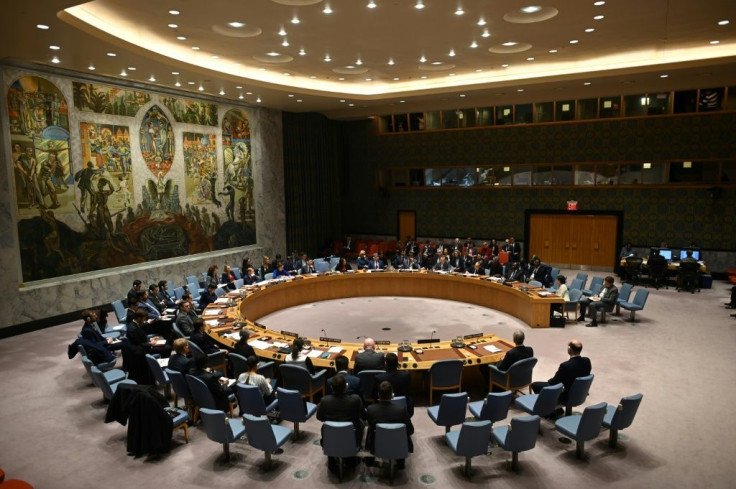After Criticism, Segment Of UN Security Council Meet Made Public
The UN Security Council made its video-conference-only meetings public Tuesday for the first time in nearly a month, after criticism of what was called a lack of transparency as it tried to play safe during the coronavirus pandemic.
The part of the meeting made public online was short -- just 10 minutes -- and addressed events in Mali, where the government is fighting a jihadist insurgency.
This was made possible by the Dominican Republic, which is president of the 15-member council for the month of April.
In March the post was held by China, where the coronavirus pandemic first started. Part of a Security Council meeting on March 12 was accessible online, but that was the only time it happened that month.
This drew criticism from 25 countries from around the world that call themselves the ACT Group. The letters stand for accountability, coherence and transparency. The grouping is led by Switzerland.
"The ACT Group is concerned that the meetings of the Council that have taken place since the crisis made physical meetings in the Council's chamber impossible have not been included in the programme of work, officially announced or webcast," Swiss UN ambassador Jurg Lauber said in a letter sent March 31 to the UN Security Council.

Tuesday's meeting screening was only long enough for Mali's UN envoy, Mahamat Saleh Annadif, to deliver his speech from Bamako.
The screen then went black -- as programmed for all such public meetings in April -- and the 15 Council members presented their views in private, as opposed to presenting them live like in the past.
The UN has blamed the absence of public videoconferences on technical issues. But several council members promised to broadcast their speeches at a later date.
One diplomat suggested that the connection quality was not as good because it was based in Brindisi, Italy.
The videoconference software used by the UN does not allow for the simultaneous translation into the six main languages in the body (English, Spanish, French, Arabic, Russian and Chinese), meaning meetings are conducted in English.
One French-speaking diplomat, speaking on condition of anonymity, told AFP the enforced English was torturous, because it was impossible to correct speeches before they are said aloud.
He added he was concerned about the hazards of an increasingly Anglo-Saxon vision of the world at the UN.
© Copyright AFP 2024. All rights reserved.





















